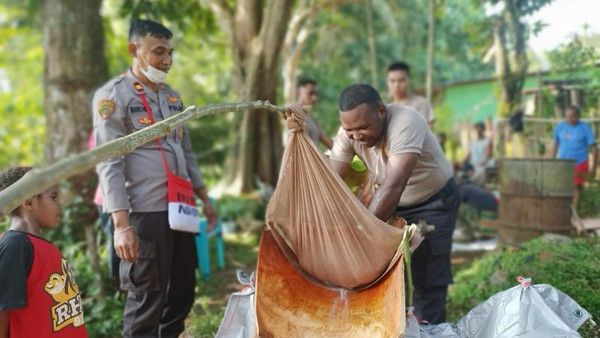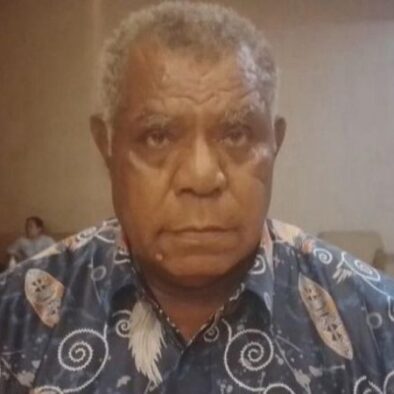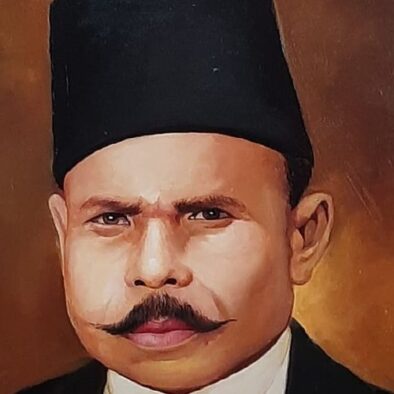Thelandofpapua.com – In a bid to preserve traditional cultural practices and boost the local economy, Inspector Made Ambo, alongside community members like Levina Wandi, has spearheaded the revival of the nokok culture in Jayapura, Papua.
Nokok, the traditional method of extracting starch from sago tree trunks, had been dwindling in popularity, particularly in urban areas where modernization had taken precedence. However, through concerted efforts, this age-old tradition is experiencing a renaissance, bringing together community members and igniting economic opportunities.
Inspector Made Ambo, known for his dedication to cultural preservation, has been a driving force behind the resurgence of nokok culture. His commitment to this cause was recognized when he was proposed as a candidate for the prestigious 2024 Hoegeng Awards, following his nomination in 2023.
Working closely with individuals like Levina Wandi, Inspector Ambo has actively engaged in reviving and promoting the nokok tradition.
Levina Wandi, a local resident deeply involved in this initiative, shared her story of collaboration with Inspector Ambo. Prior to their intervention, sago trees around her house were routinely sold off without processing. However, with Inspector Ambo’s assistance and the involvement of the community, the nokok tradition has been revitalized.
Levina highlighted the initial challenges faced in garnering interest and participation, particularly among younger generations and city dwellers. She noted that urban residents, unlike their rural counterparts, were less inclined towards traditional practices such as nokok.
However, with Inspector Ambo’s outreach efforts and police support, the community’s engagement in nokok has significantly increased.
The economic benefits of reviving the nokok culture are notable, with sago being sold at IDR 300 thousand per sack. This economic activity not only provides income for participating community members but also fosters a sense of camaraderie and collaboration within the community.
Reflecting on the impact of the revitalized nokok tradition, Levina expressed optimism about its future. “Yes, it’s easy to find someone to do something like that.
We can sell it, share it with neighbors. Anything else is already flowering and we want to cut it down again,” she remarked, highlighting the enthusiasm and momentum generated by this cultural resurgence.
The revival of nokok culture in Jayapura serves as a testament to the power of community-driven initiatives in preserving traditional practices and stimulating local economies.
Inspector Made Ambo’s leadership and the collective efforts of community members like Levina Wandi exemplify the potential for cultural heritage to thrive amidst the challenges of modernization, enriching both the social fabric and economic vitality of the region.



